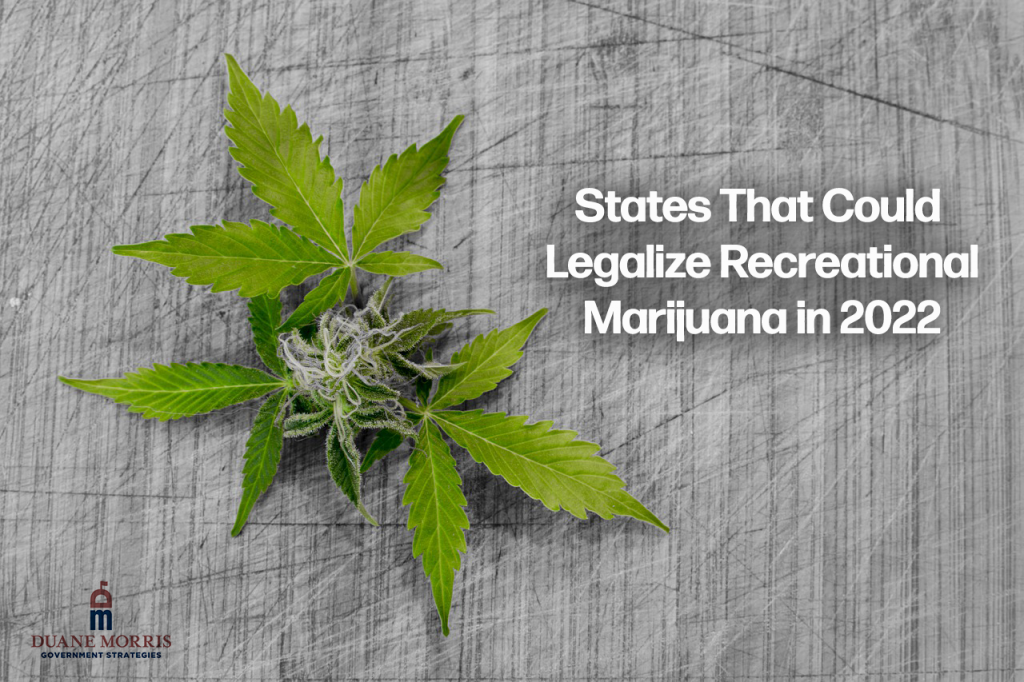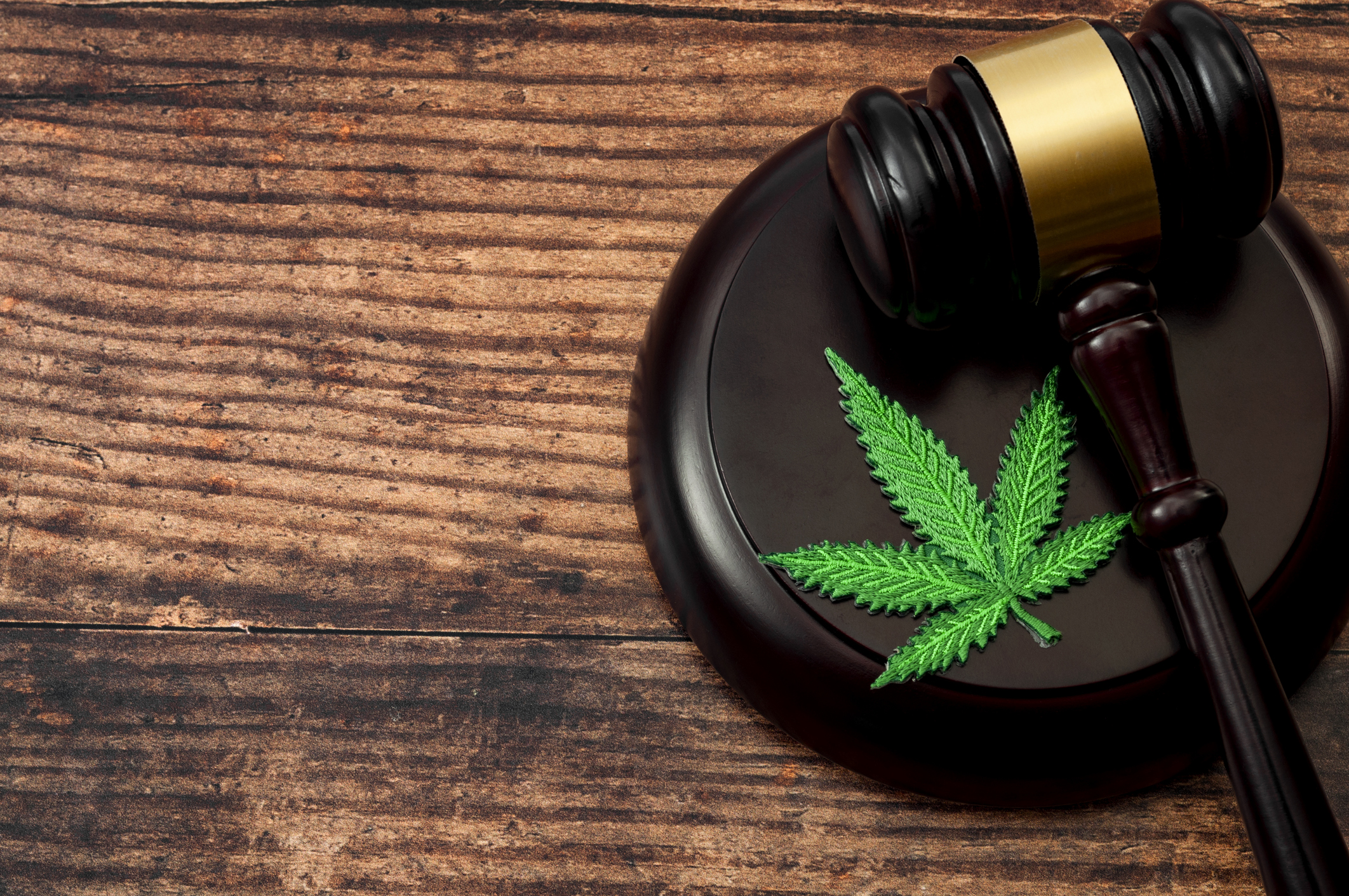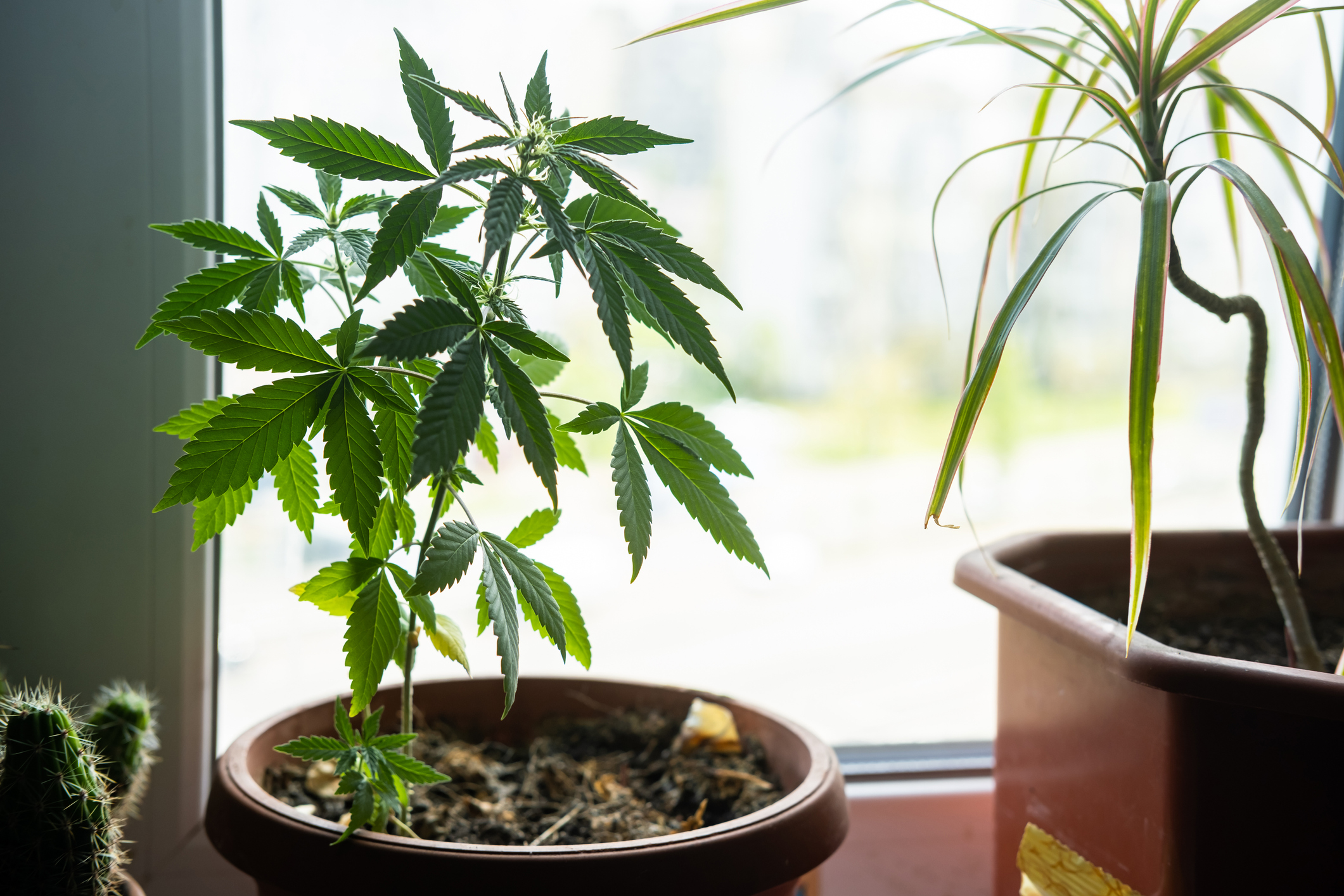As of May of 2021, 36 states allow for the use of medical marijuana, a topic we have covered extensively in the past. In 2021, five states began allowing recreational cannabis — New Mexico, New Jersey, New York, Virginia, and Connecticut. However, only 18 states and the District of Columbia, as of November 2021, have passed legislation to allow for non-medical, recreational use of cannabis. As many states begin their 2022 legislative sessions, could we see that number grow? Lawmakers around the country are already introducing various pieces of recreational marijuana legislation.
Delaware
Last year, State Rep. Ed Osienski’s recreational marijuana legislation failed to advance after numerous proposed amendments stalled the bill. House Bill 150, in its initial form, would allow those over the age of 21 to legally possess, use, purchase, or transport marijuana under one ounce (no more than 5 grams can be concentrated) for personal use. However, the legislation would not permit people to grow their own cannabis.
The bill would further establish the Delaware Marijuana Control Act to regulate and tax cannabis similarly to alcohol. HB 150 would prohibit the use of marijuana in public by either drivers or passengers in vehicles, prohibit the smoking of cannabis where smoking of tobacco or e-cigarettes is prohibited, and prohibit marijuana from being sold in an establishment that sells alcohol. HB 150 would also allow employers and certain owners of residential housing to prohibit the use of marijuana.
Osienski indicated he has worked on tweaking the bill to incorporate the various amendments from last year that address issues such as a social equity fund to get enough votes to pass the legislature.
Last year, Governor John Carney expressed his opposition to legalizing marijuana. However, he stopped short of saying whether he would sign or veto the legislation if lawmakers passed it and sent a bill to his desk.
Maryland
Maryland lawmakers introduced House Bill 1 in January of 2022 to legalize recreational marijuana. Specifically, the recreational marijuana legislation would amend the Maryland Constitution to allow for the use and possession of cannabis for those over the age of 21. If passed, the constitutional amendment would go to the voters in the next general election in November of 2022.
The bill states that at the next election, the question appearing on the ballot shall be substantially similar to the following question: “Do you favor the legalization of adult-use cannabis in the State of Maryland?”
The Speaker of the Maryland House, Adrienne Jones, said last summer she believes voters should decide whether or not to legalize recreational marijuana in the state. She further formed a workgroup to study how a recreational marijuana program should be implemented if voters approve of such a program.
Ohio
In late 2021, the Coalition to Regulate Marijuana Like Alcohol submitted over 200,000 signatures from Ohio voters to send legislation to state lawmakers. However, the Ohio Secretary of State’s office determined that the group only submitted 119,825 valid signatures, short of the 132,887 required. The group has until January 13th to collect enough signatures for the proposal to advance to the legislature.
The proposed bill would allow for the purchase and possession of 2.5 ounces of cannabis and 15 grams of concentrates for those over 21. The bill would further allow individuals to grow up to six plants but no more than 12 in a household containing more than one adult.
If the effort were to succeed, lawmakers would have four months to act on a bill. If they do not pass it or pass an amended version, supporters would be allowed to collect another round of 132,887 valid signatures to put the question on the ballot for voters in Ohio’s next general election.
Pennsylvania
While Pennsylvania passed medical marijuana legislation a few years ago, recreational marijuana legislation, or decriminalization legislation, has not been able to get through the legislature. However, this session has seen more lawmakers introduce their own legislation to legalize or decriminalize marijuana.
Senate Bill 473 is a bipartisan piece of marijuana legislation introduced in October 2021. The bill would allow marijuana consumption only for those over 21. It would also address social equity by granting licenses to social and economic equity applicants. The bill would further decriminalize marijuana to a certain limit and expunge non-violent marijuana convictions. SB 473’s co-sponsorship memo notes that neighboring New Jersey and New York states have passed their own recreational marijuana legislation. Pennsylvania could lose out on hundreds of millions of dollars in tax revenue.
Another bipartisan piece of legislation introduced this session is Senate Bill 107, which would decriminalize cannabis by changing the possession of a small amount of marijuana to a summary offense. Current state law grades such possession as a third-degree misdemeanor. SB 107 defines a small amount of marijuana as 30 grams or less of marijuana or eight grams or less of hashish.
A Republican state senator also recently sent out a co-sponsorship memo for recreational marijuana legislation that would legalize cannabis for those over the age of 21, establish a new regulatory control board, and remove penalties for the use and possession of cannabis by adults. The legislation also addresses the issues of marijuana and firearms, DUI enforcement, and education and deterrents for underage use and possession.
House Bill 857 was introduced in March of 2021. It would reduce penalties for possessing small amounts of marijuana, under 30 grams, from a misdemeanor to a summary offense.
South Dakota
South Dakota voters approved legalizing both medical and recreational marijuana in the 2020 general election. However, last month, the state’s Supreme Court upheld a lower court’s ruling that nullified the voter referendum to legalize recreational marijuana in South Dakota.
The Supreme Court ruled that the ballot question (a constitutional amendment) would have violated South Dakota’s requirement that constitutional amendments only deal with one subject since ‘Amendment A’ contained provisions related to at least three separate subjects: marijuana, medical marijuana, and hemp.
However, lawmakers still hope to address the issue of marijuana as it appears the issue will dominate the 2022 legislative session. As of early January, more than 25 of the 38 introduced pieces of legislation for the 2022 session dealt with either medical or recreational marijuana.
One bill is Senate Bill 3, previously passed by the Marijuana Interim Study Committee. If passed by the legislature, SB 3 would legalize the possession of one ounce or less of cannabis by individuals over the age of 21 while reducing penalties for the possession of cannabis by an individual over 21. Under current law, the possession of two ounces or less of cannabis is a class one misdemeanor. Penalties that go with the misdemeanor include up to one year in prison and up to $2,000 in fines.
SB 3 defines one ounce of marijuana to include the equivalent weight for:
- Eight grams net weight of marijuana concentrate in smokable form;
- Eight grams net weight of vaporizer pens or cartridges;
- Eight hundred milligrams delta-9 tetrahydrocannabinol in edibles, excluding oils;
- Five grams net weight of oils in oral dosage syringe or capsule form;
- Twelve fluid ounces of liquid topical application, such as ointment, cream, or lotion;
- One ounce of dried topical application, such as dried plant material or powder; or
- Eight hundred milligrams delta-9 tetrahydrocannabinol in transdermal patches.
Further, the South Dakota Department of State’s website lists “an initiate measure legalizing the possession, use, and distribution of marijuana” as a potential 2022 ballot measure, with petitions being circulated for the measure. The petition for the ballot initiative states that the measure would legalize the possession, use, and distribution of marijuana and marijuana paraphernalia by those over the age of 21 and would allow for the possession of one ounce or less of marijuana.
Other Marijuana Related Articles
Latest News
Photo credit: iStock.com/IURII BUKHTA THC-infused beverages are gaining traction across the country as an alternative to traditional cannabis products. While the 2018 Farm Bill legalized hemp-derived Delta-9 THC products containing less than 0.3% THC, regulations [...]
Photo credit: iStock.com/Moussa81 Pennsylvania's journey with cannabis legalization has been a slow but evolving process. In 2016, the Commonwealth took its first significant step by legalizing medical cannabis through the Medical Marijuana Act. This program [...]
Photo credit: iStock.com/MiMaLeFi Twenty-four states, two territories, and the District of Columbia have legalized cannabis for adult recreational use. In contrast, the United States government has regulated cannabis under the Controlled Substances Act (CSA) as [...]
Marijuana in a pot on the windowsill. Home cultivation of medical cannabis. Cannabis laws have evolved rapidly across the United States. Cannabis has been shown to have benefits for a range of medical conditions, including [...]







Stay In Touch